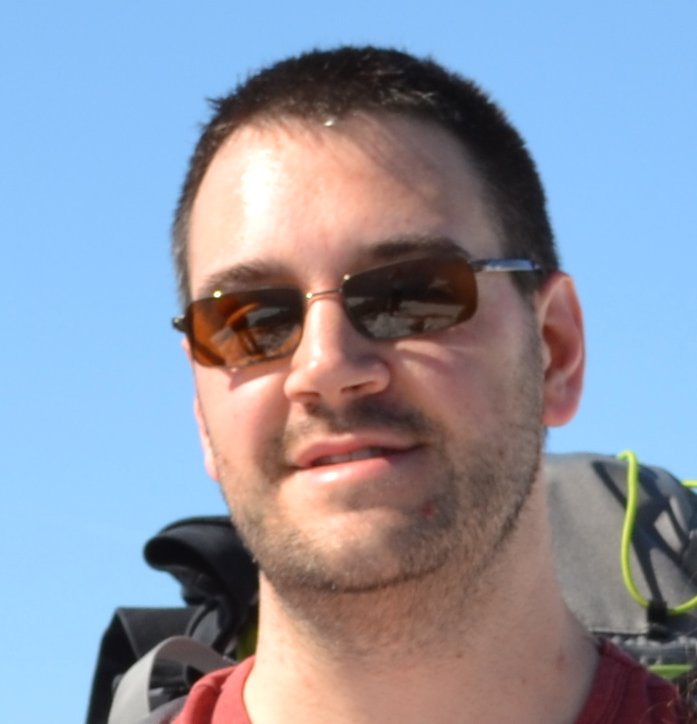About Me
I am a data engineer at Unit8.
As a software and data engineer, I seek to have an impact by using data to solve problems. I like working in an energetic environment where ideas are validated with fast prototyping, in order to bring the most value. I deeply value clean and readable code.
I was previously a software and (big) data engineer and a Scrum Master at Swisscom, in the Data, Analytics, and AI (DNA) department.
I served my team as a Scrum Master, which taught me how helping others to succeed is the most valuable contribution that one can bring to a team: I am fascinated by coaching and continuous improvement, and I believe in realistic planning to minimize risks and waste. I seek an environment where I can employ my passion for building solutions using data, while bringing a contribution in the growth of a team.
I obtained my PhD in software engineering at USI (Università della Svizzera Italiana), in the Faculty of Informatics. I worked in the REVEAL (Reverse Engineering, Visualization, Evolution Analisys Lab) group, under the supervision of Professor Michele Lanza and Doctor Andrea Mocci. My research interests involved Software Engineering and Software Evolution, focusing on improving bug tracking systems.
I obtained my bachelor's and master's degree in Informatics at the University of Padova, where I specialized in Artificial Intelligence, Information Retrieval, and Machine Learning.
Research
My research interests revolve around bug reports: collection, modelling, representation, and correlation of information generated during a software failure to augment issue tracking systems and support debugging. I am not currently involved in research, but I have still a string interest for the topic.
During my PhD i built a set of tools to browse and visualize the information inside an issue tracker, to collect information during program execution, and to model a bug report as a structured entity to ease automated analisys, rather than using plain text.
The tools I built led to the creation of ShoreLine, a data collection system to collect and browse failure information for the Pharo ecosystem
My interests include:- Software Engineering
- Data Science
- Machine Learning
- Data Visualizations
- Software Evolution
Publications
-
Content Classification of Development Emails
In Proceedings of ICSE 2012 (34th International Conference on Software Engineering), pp. 375–385, IEEE CS Press, 2012. -
A closer look at bugs
In Proceedings of VISSOFT 2013 (1st IEEE Working Conference on Software Visualization), pp. 1–4, IEEE CS Press, 2013. -
in*Bug: Visual analytics of bug repositories
In Proceedings of CSMR-WCRE 2014 (1st Joint Meeeting of the European Conference on Software Maintenance and Reengineering and the Working Conference on Reverse Engineering), pages 415–419, IEEE CS Press, 2014. -
Managing Software Defects
In Proceedings of ICSME 2014 (30th International Conference on Software Maintenance and Evolution, page 669, Doctoral Symposium, 2014. -
Misery Loves Company: CrowdStacking Traces to Aid Problem Detection.
In Proceedings of SANER 2015 (22nd IEEE International Conference on Software Analysis, Evolution, and Reengineering), pp. 131–140, 2015. -
Blended, Not Stirred: Multiconcern visualization of large software systems
In Proceedings of VISSOFT 2015 (3rd IEEE Working Conference on Software Visualization), pp. 106–115 2015. -
What Makes a Satisficing Bug Report
In Proceedings of QRS 2016 (The 2016 IEEE International Conference on Quality, Reliability, and Security), pp. 164–174, IEEE CS Press, 2016. -
How to Gamify Software Engineering
In Proceedings of SANER 2017 (24th IEEE International Conference on Software Analysis, Evolution, and Reengineering), pp. 261–271, IEEE CS Press, 2017. -
Sympathy for the Devil: Reified Collection of Runtime Errors
In Proceedings of PLATEAU 2017 (8th International Workshop on Evaluation and Usability of Programming Languages and Tools), to be published, ACM Press, 2017
Teaching
During my PhD I served as a teaching assistant for the following courses:
- Software Atelier I: Software Tools 2013/2014
- Software Atelier IV: Software Engineering 2013/2014
- Algorithms & Data Structures 2014/2015
- Software Tools Atelier 2014/2015
- Software Atelier 1: Fundamentals of Informatics 2015/2016
- Software Atelier 1: Fundamentals of Informatics 2016/2017
